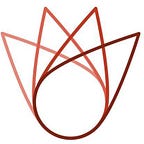Blog: New terms of engagement in community media
Jabari is determined to shift the terms dictating how community media is funded by facilitating the re-engagement with donors
By Khutso Tsikane and Simonia Mashangoane
Civil society in South Africa has played an integral role in addressing inequality at a grass roots level, where often poor service delivery and government’s inadequacies have a dire impact on communities. As we reflect on World NGO Day which took place this week, we are compelled to examine the multiple issues plaguing the sector and give careful thought to the importance of one particular sector, ailing community media entities.
Communities, although not homogenous, have a tremendous amount of insight into their own challenges and solutions to the socioeconomic matters that affect them. Community media has historically been the best vehicle to voice those discussions by facilitating dialogue that can result in improved accountability at a local governance level. By their nature, community media are nonprofit community-based organizations (CBO) that are concerned with every aspect of community life, essentially rendering them a necessary tool to development.
Community media is dedicated to the principles of free expression and participatory democracy. Radio, in particular, is crucial for facilitating local debate on topical issues and creating an alternative public sphere where counter-hegemonic views can be expressed. The sustainability of this sector is a matter that is fundamental to South Africa’s democratic fiber and is at the core of media plurality.
Their status as non-profit CBOs places them at the epicenter of the broader issues facing the NPO sector; funding, capacity constraints, sustainability, and the complexity of measuring impact. Playing in the donor field is not new to community media, however strenuous donor demands, and conditions have limited their access to donor funding.
In addition, new technologies and a severe downturn in the economy are putting pressure on community media to rethink the way they do business. An increasingly digitised and networked communications era has fundamentally changed business models. As the media transitions into digital broadcast systems, community media is pushed to operate in a globalised and networked society and constantly has to wrestle with its local objectives in a globalised world.
The increased focus on 4IR, digital migration and spectrum distribution will pose new challenges to this sector and will call on donors to rethink how they engage this sector. The “community” in community media will, now more than ever, suffer from definitional issues as communication technologies merge and migrate online.
Taking stock of the importance of this sector in relation to donor funding and technological changes can lead to new opportunities to engage thoughtful donors who want to fund diversity. There is a space for donors who want to fund at different levels, over different time periods and with different levels of risk. The time is now for donors and community media to re-engage on different terms, as the landscape has drastically changed from what is was in its early years.
There is an increasing need for stakeholders that have a vested interest in the survival of community media and its potential placement in a changing developmental landscape. Jabari is an agency that is determined to shift the nature of the demand and supply dynamics that dictate how community media is funded by facilitating the re-engagement of the two sectors.
Follow how the team’s progress on the jamlab Accelerator Programme by keeping up with their story’s on this platform or subscribe to our newsletter to receive these updates and more articles on innovation in journalism and media in Africa.
RELATED ARTICLES
